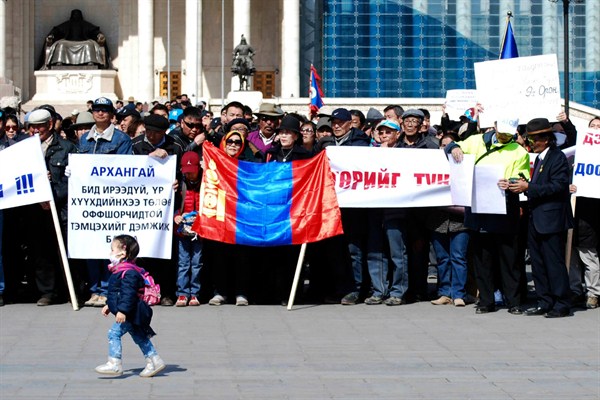Mongolia has been rocked in recent months by a series of corruption scandals that have prompted large-scale demonstrations in the capital, Ulaanbaatar. The government of Prime Minister Ukhnaagiin Khurelsukh has been paralyzed by revelations that senior government officials, including members of his Cabinet, misused funds that were intended to assist small and medium-sized enterprises. In an interview with WPR, Morris Rossabi, a professor of East Asian history at Columbia University, explains why corruption is so widespread in Mongolia and why the current wave of scandals comes at a particularly bad time for its economy.
World Politics Review: Why is corruption such a pervasive issue in Mongolia, and how did it motivate so many people to take to the streets last month?
Rossabi: Corruption has accelerated dramatically in Mongolia’s “wild ride to capitalism” since 1990. The country was plagued by minor levels of bribery and graft from its empire stage in the 13th and 14th centuries to its communist period from 1921 to 1990, but corruption was not a pervasive part of Mongolian political culture. The post-communist era, however, has witnessed an increase in corruption in politics, business and the educational and medical systems.

